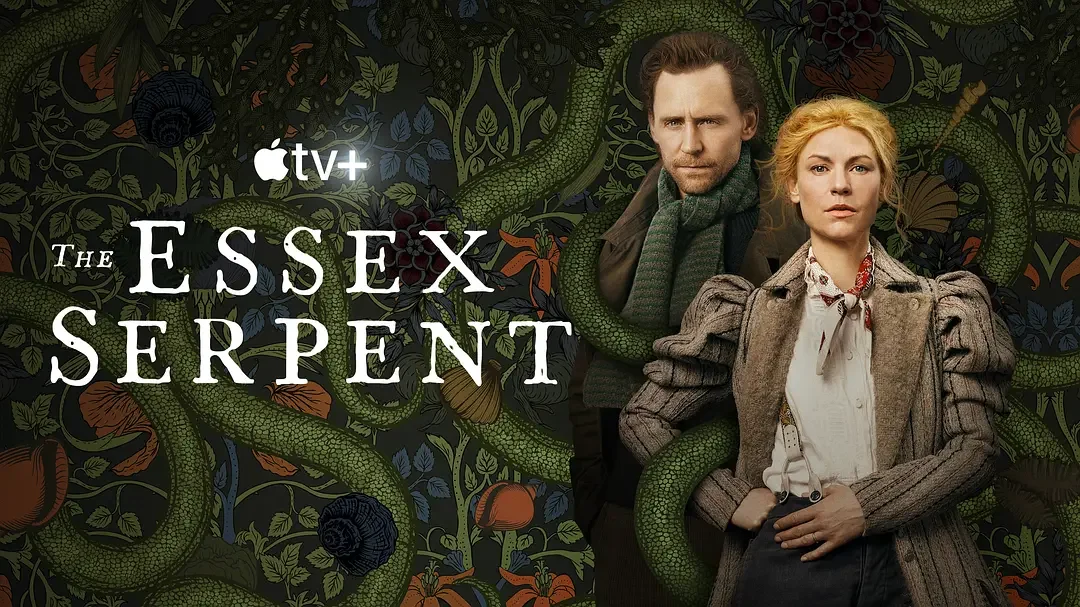In 1893, the Victorian era was also the golden age of “the empire on which the sun never sets”. However, London in 1893 was still unavoidably damp and gloomy…
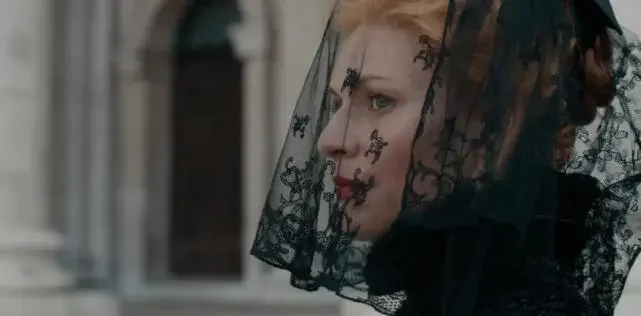
Mrs Seaborne finally ushered in the “big day” of the bereaved husband, she became a free man. The physical and mental torment this marriage has brought her is unbearable. In addition to her daily abuse, she was a spiritual slave to her husband.
Mr. Seaborne died of disease, and no one would doubt a woman who was helpless. And, Mr. Seaborne actually died from his obsession with “whole corpses” and his distrust of modern medicine.

Of course, this is not a reasoning drama about killing a husband, all of which are the fuse of the whole story.
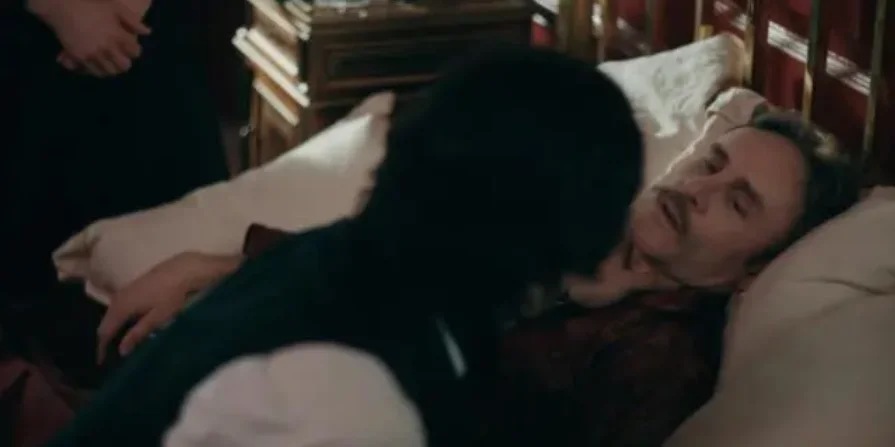
At the end of the 19th century, the second industrial revolution had already swept across Europe, and great progress had been made in natural science research.
But changes in the world cannot change everyone in an instant. Many people live in this era, but do not belong to this era.
Mrs SeaborneCora prefers fresh air and wonderful nature. So she moved to Essex and started a new life as a widow.
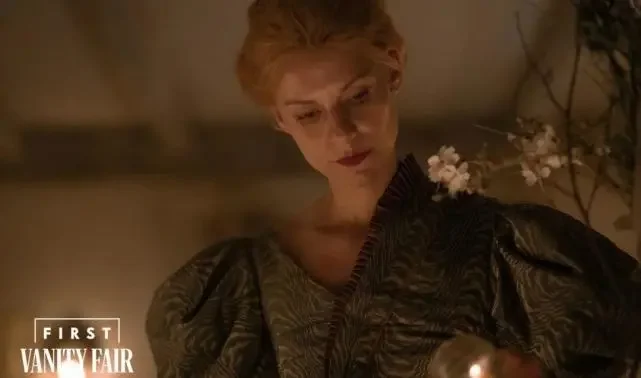
But life in the countryside is not very smooth. There are no busy and noisy cities, but there are more evil and unpredictable people.
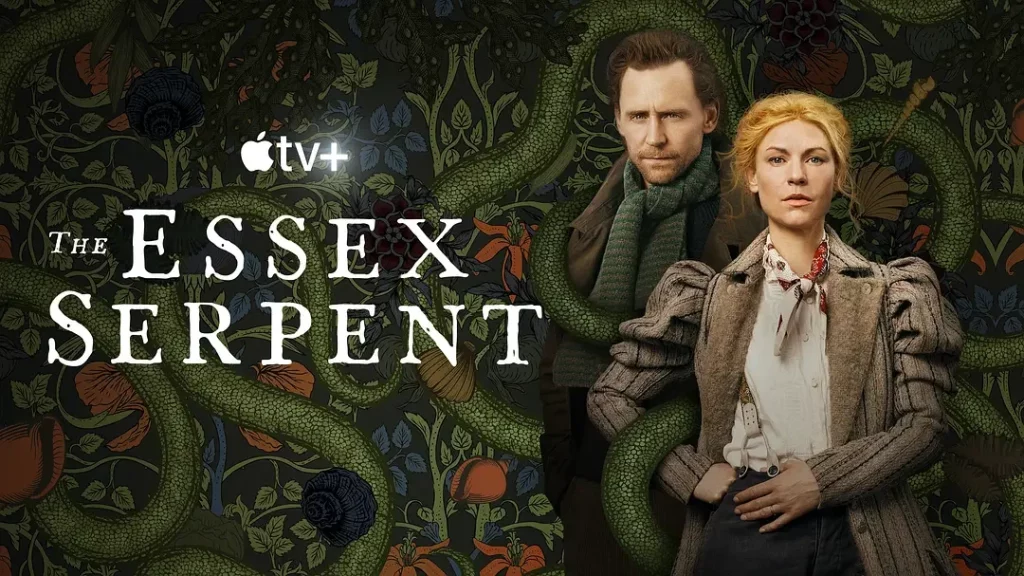
“The Essex Serpent” launches on Apple TV+ on May 13, 2022, with two episodes of six episodes currently on the air. The show’s Rotten Tomatoes is very fresh, and the good reputation is mainly due to the male and female protagonists.

Actress Cora played by Claire Danes
In 1996, at the age of 17, Danes starred in the film “Roméo Juliette”. Playing with her is Leonardo DiCaprio, who has not yet been a hunter in the wilderness.

Later, she was invited to participate in “Titanic”, but it was Leonardo DiCaprio again, and she refused decisively. We don’t know the reason for the rejection, probably because the male protagonist is too good-looking and will steal her limelight (I guess).

In 2010, Danes played an autistic animal scientist in the HBO biopic “Temple Grandin”. She won four Best Actress at the Emmy Awards, Golden Globe Awards, Satellite Awards and Screen Actors Guild Awards for her work.

In 2011, she started starring in the series “Homeland”. Then she won the 64th and 65th Emmy Awards and the 69th and 70th Golden Globe Awards for Best Actress in a Drama Series.

Actor Tom Hiddleston – Tom Hiddleston
I don’t even know where to start. Originally, Tom Hiddleston was invited to audition for “Thor” Thor, where he worked hard for six weeks.
Interestingly, this invitation was sent to many men of the right age, but Tom Hiddleston took it seriously.
Some people are made for the role, even though they’ve worked really hard, and Saul is a role that really fits Chris Hemsworth better.

But fate is so strange, Tom Hiddleston’s temperament is so in line with Loki, smart, cunning, both righteous and evil, and some feminine.

One second he can be a polite gentleman and prince, the next second he can be full of evil charm. He’s terrific and lovable, admirable, lovable, pitiful, and hateful at the same time. There’s no one more suitable for Loki in the Marvel Cinematic Universe than him.

A sullen king; a duplicitous younger brother; a son who hopes to be recognized; a villain who uses his life to atone for his sins.

Of course, many people know Tom Hiddleston from “The Night Manager”.
From the chaos of war to winter snow and summer flowers, the dreamy framing reflects Tom Hiddleston’s blue and translucent eyes. The forbearance of the undercover identity, the eyes that are eager to talk, often make people suffocated.

He’s so beautiful, but beautiful people get old too, especially — the hairline.
In “The Essex Serpent,” Tom Hiddleston took a different path and played the priest of the old village.
Under the appearance of justice and dignity, he has an unfathomable shrewdness and scheming.

The drama is based on Sarah Perry’s novel “The Essex Serpent” of the same name. In 2016, it was named Book of the Year by the National Book Awards.
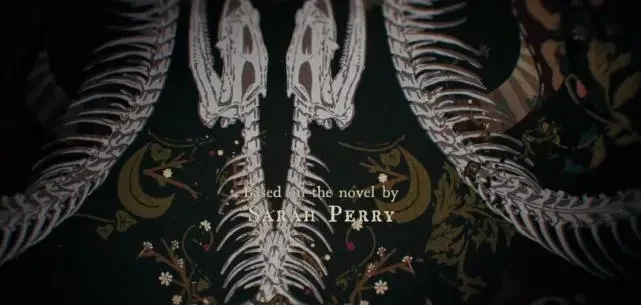
The following begins with spoilers
Closer to home, Cora’s character image should be explained more fully to everyone. In addition to being controlled by her husband, she is also afraid of him. It’s not her fault, it’s a femininity created by the times.
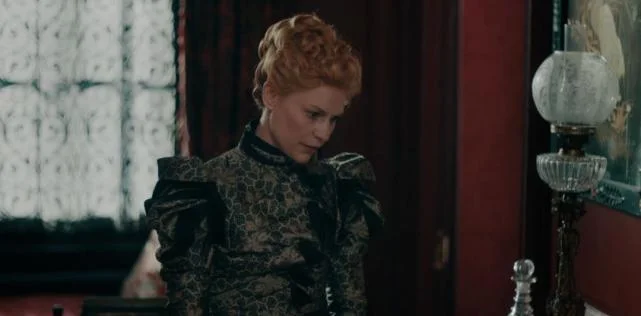
The standard of the so-called “lady’s demeanor” only began to rise in the 19th century, and it is exactly the same as the “female virtue” we understand.
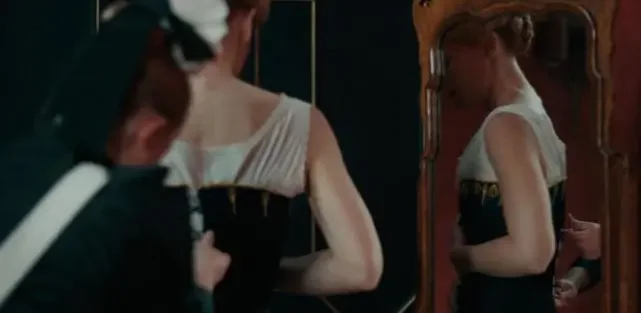
Therefore, European writers in the 19th century carefully created repressed female images one by one.
Like Marguerite Gautier in “The Lady of the Camellias”; like Eugenie Grandet in “Eugénie Grandet”; like Butterball the prostitute in “boule de suif”; like Emma Rouault in “Madame Bovary”.
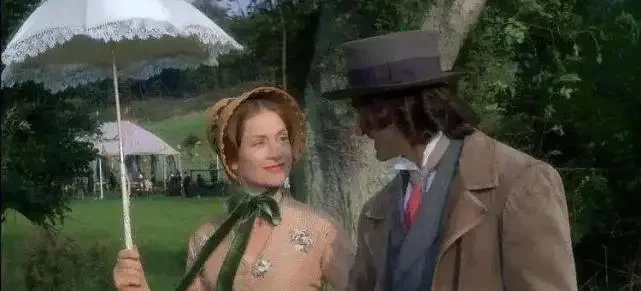
But because of this, “the bottom will rebound”, and the feminist revolution in Europe emerged in the 19th century.
Ibsen’s play “A Doll’s House” sounded the clarion call for “women’s liberation” (though the author himself did not mean it).

Thus, by 1914, there were large numbers of female workers—typists, operators, salespeople, and teachers. These jobs allow them to take the initiative to control the economy and voice to a certain extent.
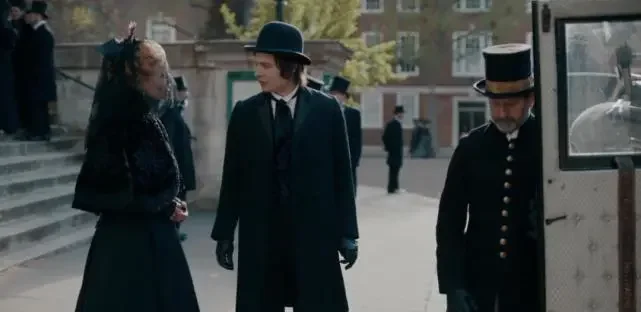
In this play, Cora also takes the initiative to communicate with men after her husband dies. Although she hesitated whether it was “indecent”, her desire to let go of social shackles has begun to germinate.

Even the maid Martha reminded her: you are free.
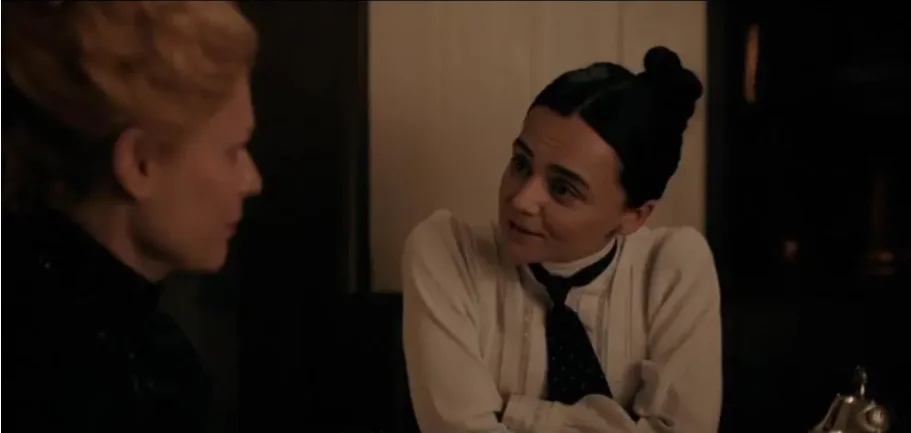
Although dependent on her husband, Cora also has her own hobbies, she loves natural history. This is an ancient science, which mainly contains the history of human beings’ dealings with nature. She also favors some mysterious ancient creatures, which she calls “living fossils”.

The maid knows her hobbies, so she brings Cora what she is interested in: In this paper, Cora reads: A mysterious creature called “Essex snake” has returned to the land.
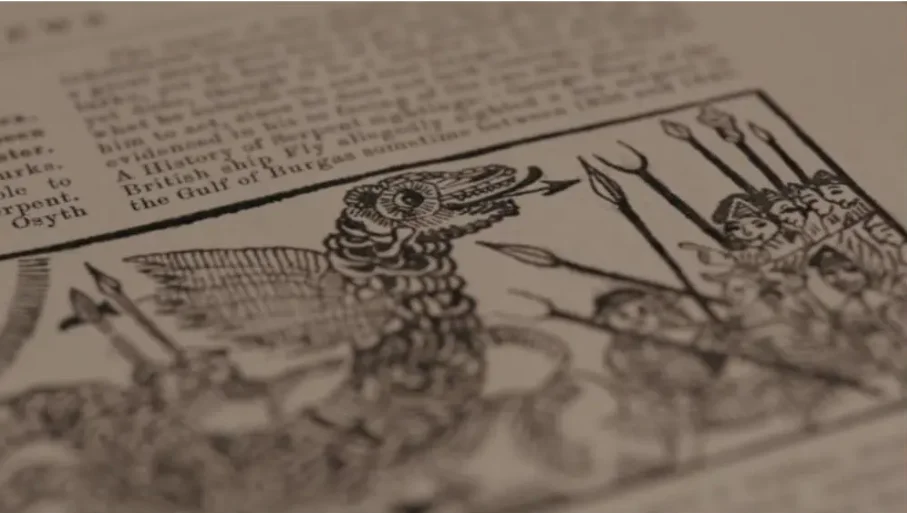
This creature is a giant Basilisk that inhabits the swampy land and kills people, and as the drowned body is found, the inhabitants of the land gradually panic.
As a result, Cora, who has an inheritance and regained her freedom, has developed a strong interest in this matter.
Of course, she wasn’t superstitious about supernatural species, she thought maybe Plesiosaur?
Cora’s idol was Charles Lyell, (November 14, 1797 – February 22, 1875), an English geologist known as “the originator of geology”.
His most famous work is “Principles of Geology”. Darwin’s theory of evolution was inspired by this book.
Charles Lyell once suggested that in our nature there are certain creatures that escaped evolution. That is to say, some creatures retain the characteristics of the ancient times, hiding in some mountains and lakes that are not occupied by humans and multiplying to the present.
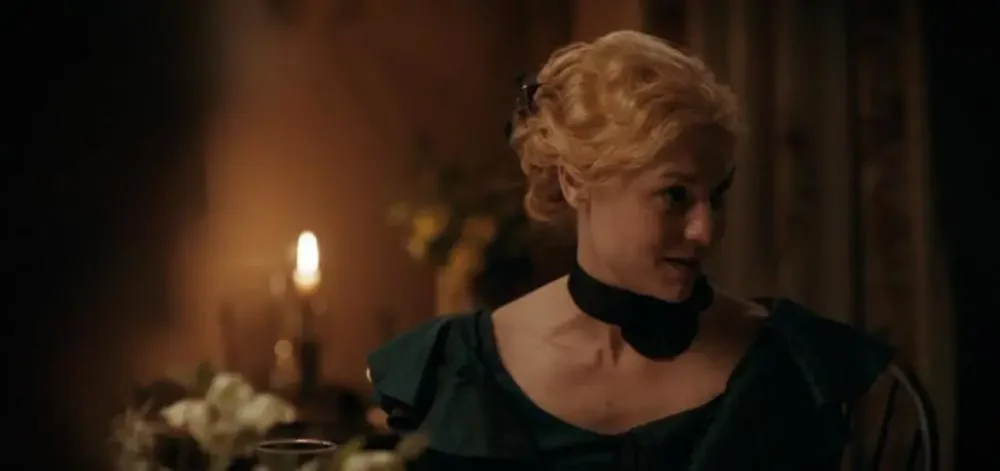
And because of changes in habitat climate or living conditions. These ancient creatures had to appear in the range of human activities. For example, the “Loch Ness Monster” that once caused a lot of uproar.
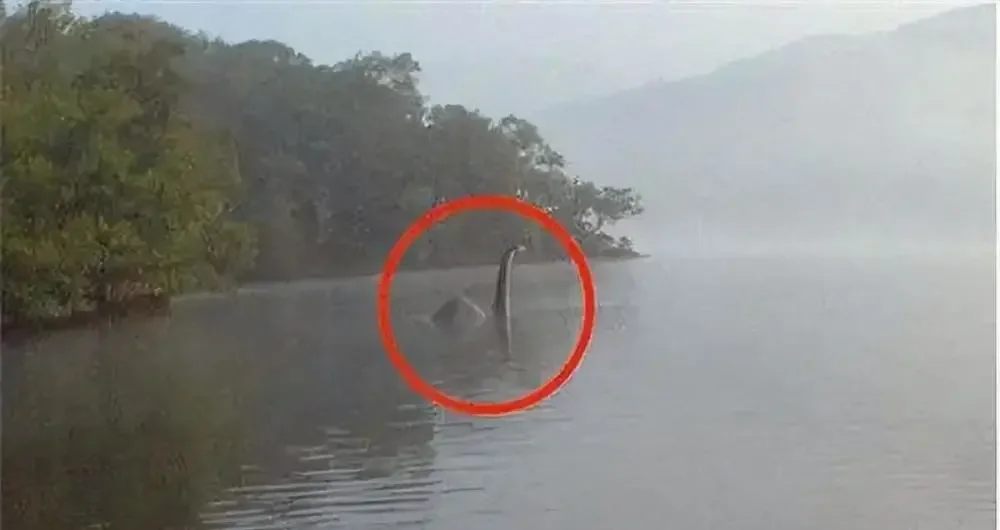
Meanwhile, in Essex, a bizarre thing happened again.
Gracie, a woman in red holding a cross, stood in the lake, and she shouted towards the lake: “Forgive me and Samuel for the mistakes, it was the giant snake who seduced me.”
In the blink of an eye, an unidentified creature dived and Naomi, the sister on the shore, turned and ran away. When she went back, Gracie was nowhere to be seen.

Naomi had promised to keep it a secret, so she told the village that Gracie had gone to Malden, another city.
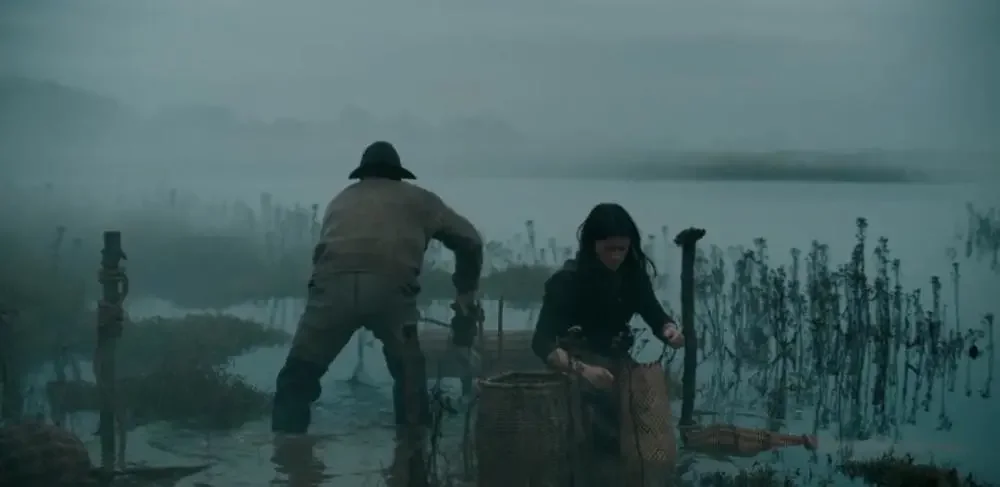
In order to find her missing sister, Naomi also killed many birds and secretly sacrificed giant snakes.
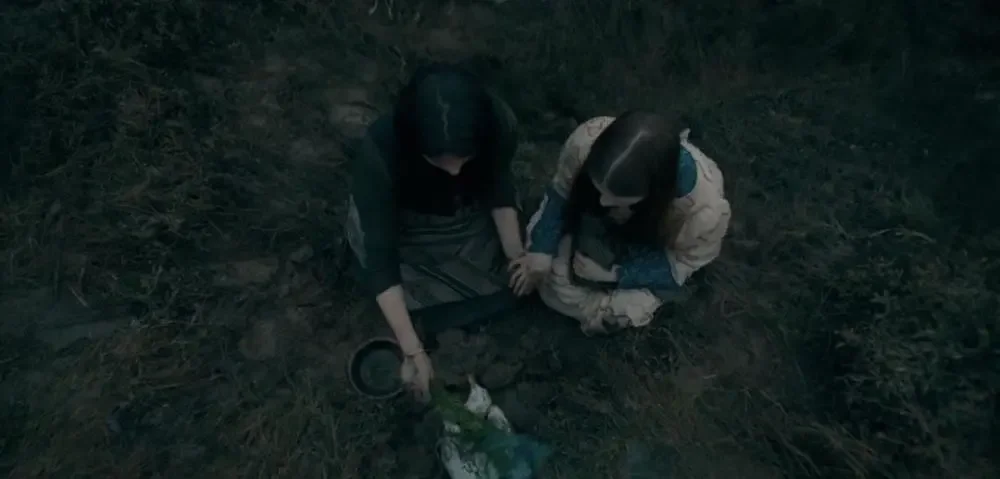
The missing Gracie did not come back, but the town welcomed Cora, a beautiful young woman from London, and her servant and son.
Local rumors about fantasy animals have been hyped up.

Everyone is so vivid and amazing, but no one has actually seen them. In short, don’t ask, just ask “I have a friend who has seen it”.
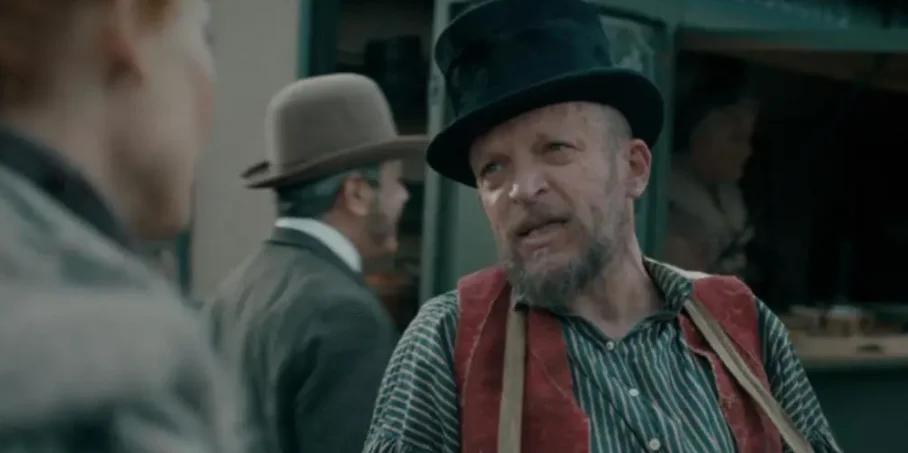
Anyway, Cora, intent on finding out the truth, went to the lake alone. Here, she meets the priest Will Ransome, played by Tom Hiddleston.
Will’s point is clear: He doesn’t believe the rumors, and he doesn’t think there’s any weird snake, it’s all fake.
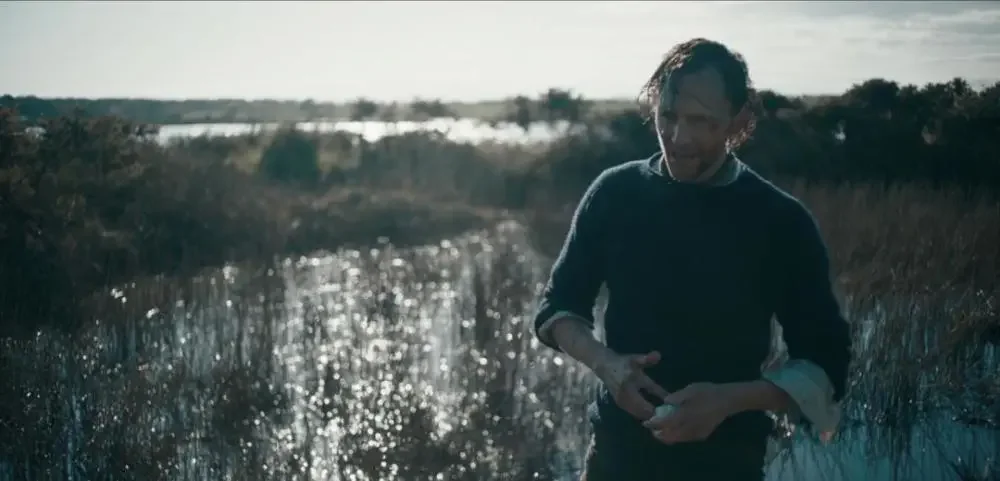

Will has a wonderful family in the parish – a wife and two children. They are very vigilant and even prejudiced towards people from the city.
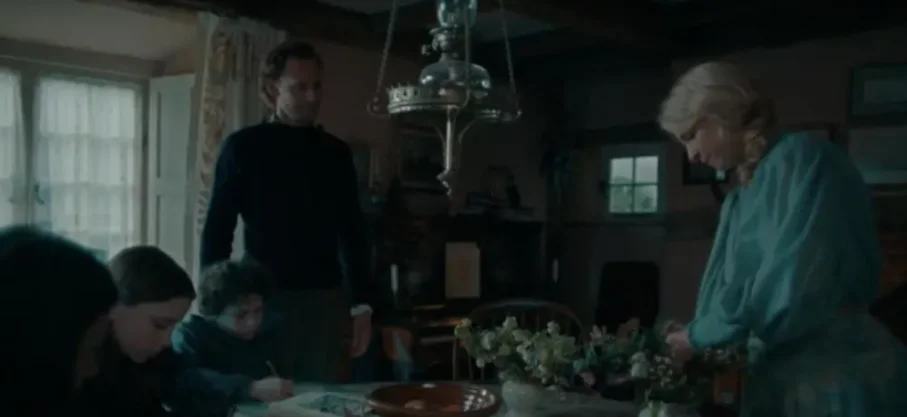
There are many reasons. People living in small towns will naturally feel that the people in the city are very powerful, noisy and complicated.
The other thing is that Will is a church family, they are religious, but people in the city often lack faith.
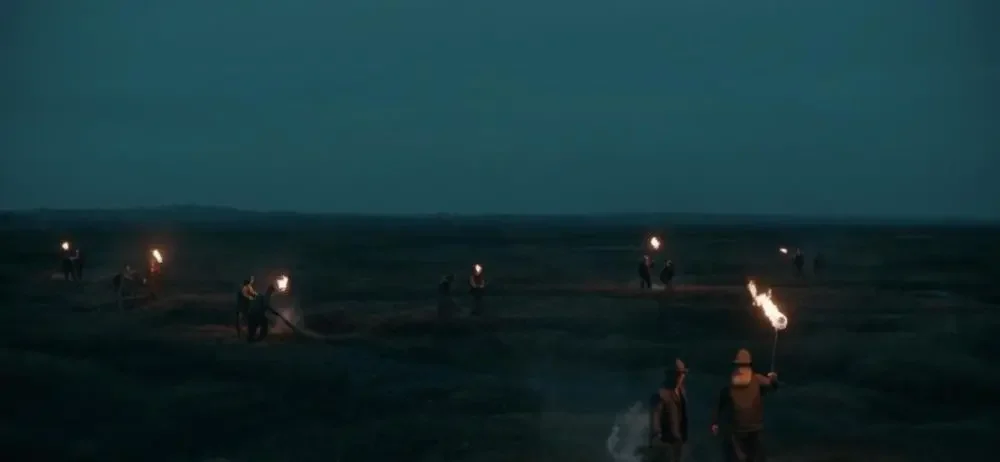
Science is unacceptable when people cannot face it. For example, the doctors in the city will peel off the human body for surgery, which is no different from witchcraft.
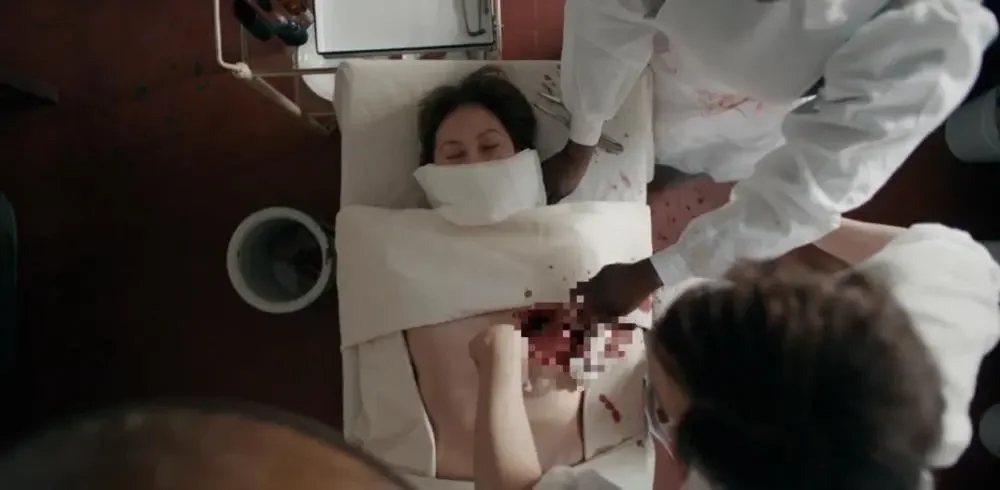
The progress of scientific rationality and the conservative conflict of religious beliefs have become a highlight of the play.
It is interesting that Cora, who has a little scientific literacy, coincides with Will in his attitude towards giant snakes.

Cora thinks it’s some kind of aquatic animal, and Will thinks it’s an imaginary demon. People should strengthen their beliefs and make people’s hearts stable so that they won’t create monsters.
In short, neither of them felt that it was something strange.
So, are there giant snakes? It didn’t show up until the end of the second episode.
I saw a very interesting comment that said: “The story of the gods forced me to look back and see that it would be better to have a giant snake at the end!”
I’ve searched a lot of information and searched the original book, but to no avail.

In the process of reading, I found that this drama seems to be about a love story between a married priest and a widowed young woman. This can’t help but make people a little nervous.
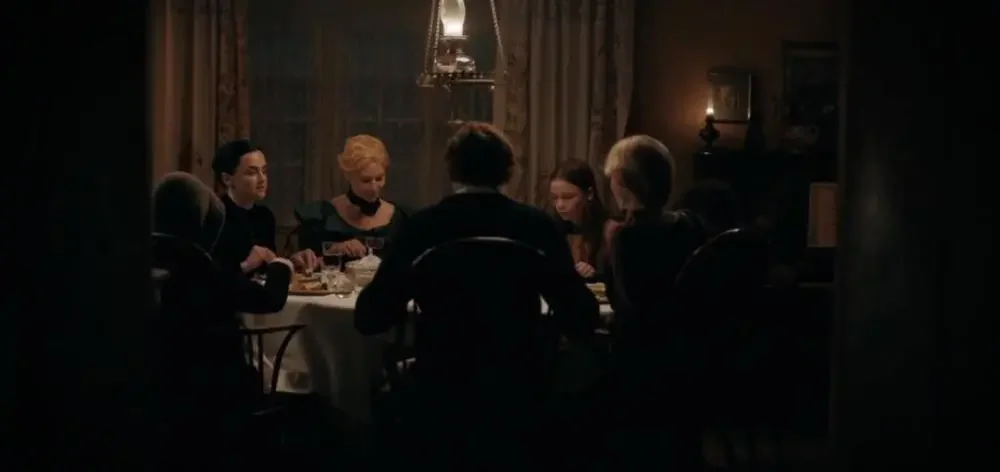
In the beginning, Will and Cora can be said to be tit for tat. Will refuses to investigate the serpent, insisting that the rapid development of the times is causing panic.
Cora taunted him, shying away from the problem at hand. I would rather believe in the invisible and intangible God than really explore the possible creatures.
Many people think that Tom Hiddleston’s acting in this show is very “constipated”.
But facing such an aggressive family, a family in the city who asked the pastor to help take care of them, couldn’t help but feel a little embarrassed.

And Cora has a pampered and hapless son, Frankie. Although he didn’t say many words, every sentence hit the nail on the head.
In addition to the speechless “constipation”, I don’t know what expression is more appropriate.
The deadlock is broken when the town brings news of Gracie. She hadn’t been to Malden at all, and her body was found in the lake.
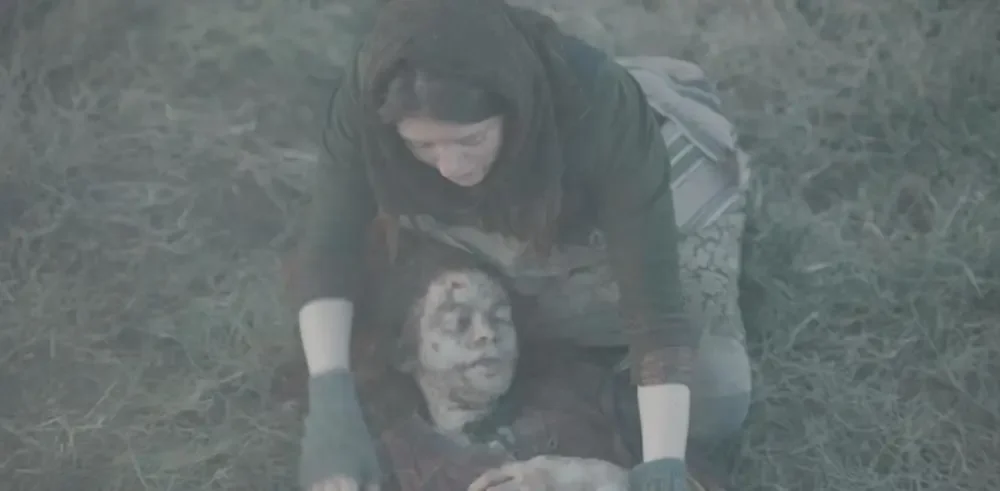
The faith of the parish was completely shaken, and if demons did appear, God could not protect them.
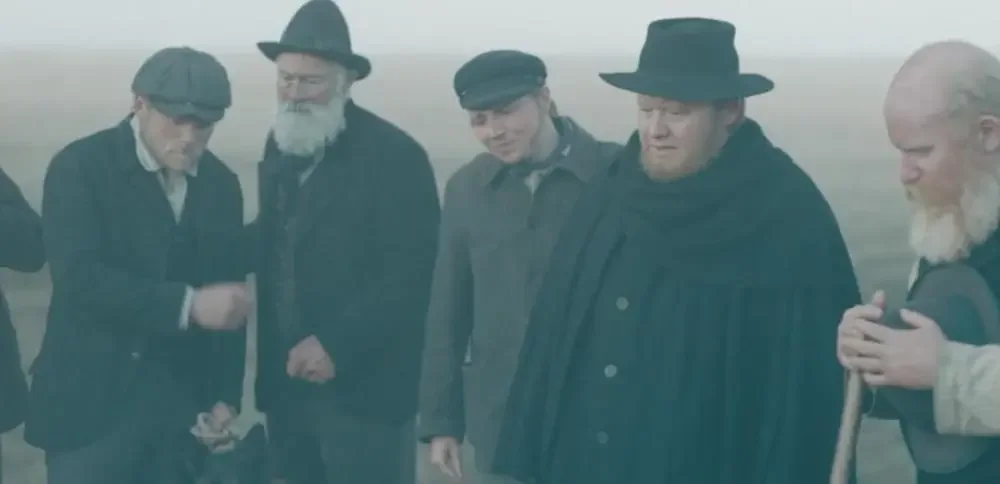
That can only prove that the people in this place are guilty. That’s why Will has been trying his best to appease everyone that there are no giant snakes.

In a broad sense, the snake and Satan mentioned in “Scripture” can be considered the same thing. The serpent is the incarnation of Satan, and in “Genesis” also seduces Eve, severing the most direct connection between man and God.
Many times people equate Satan, devil, ancient serpent, and dragon with the same thing. Therefore, any monsters in the parish are better than snakes.
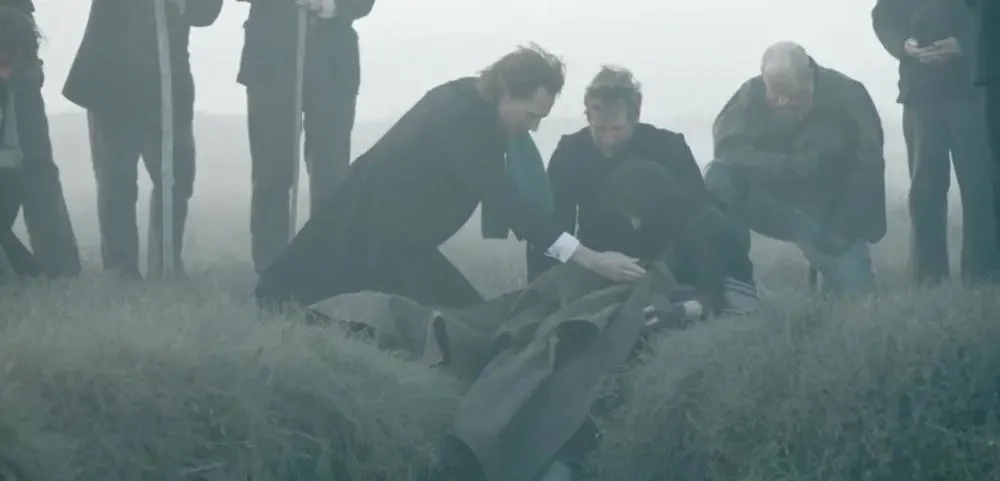
Human lives have already been taken out, and there is no way to hide it, so let’s investigate the case directly.
I feel that starting from the second episode, the plot began to go in the direction of investigation and reasoning.
Cora’s way of tracking and research is by looking for fossils. If there are fossils related to Plesiosaur, it may have been the habitat of dinosaur-like paleontology in ancient times.
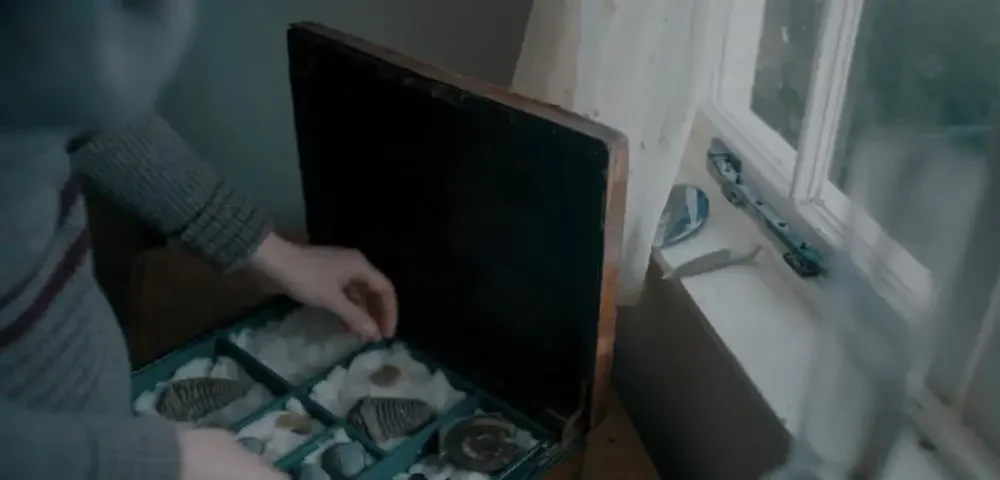
So, with her son Frankie, Cora moved straight into the parish.
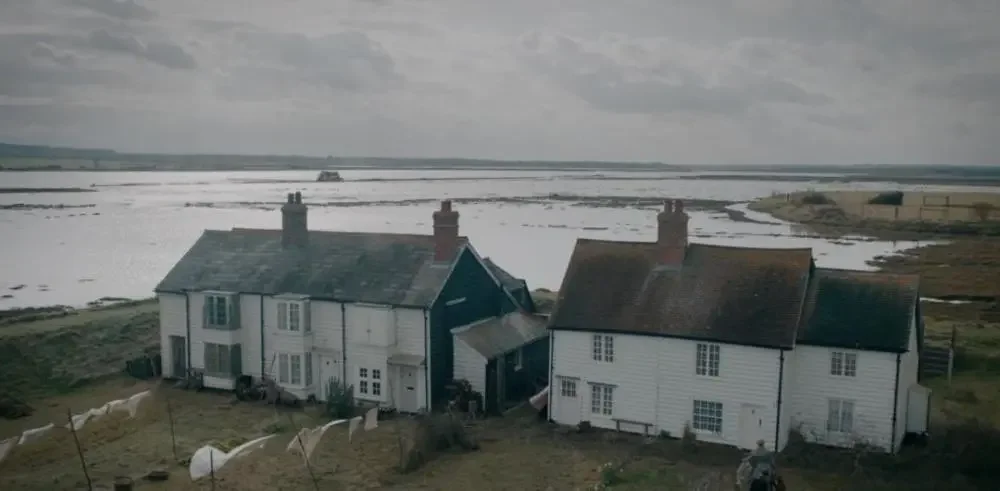
In fact, Will’s identity is also very suspicious, he does not seem to be a pure priest. I think that’s one of the reasons why the director chose the more aristocratic Tom Hiddleston to play the role.

First of all, he is very knowledgeable, has read a lot of books, and has a little research on science. He didn’t look like someone who was willing to live in a backward town, in both his manners and his speech.
Second, he clearly had the opportunity to get a better and more advanced position in the city, but he insisted on being a pastor in this remote parish.
In the end, Will was reluctant to accept the idea of the villagers setting up quarantine zones and holding a press conference.

So Will decided to arrange for Cora to enter the school and do science science with the children.
In class that day, Naomi (the sister of Gracie who died earlier) had a sudden convulsion. All the children hissed like snakes and fainted.
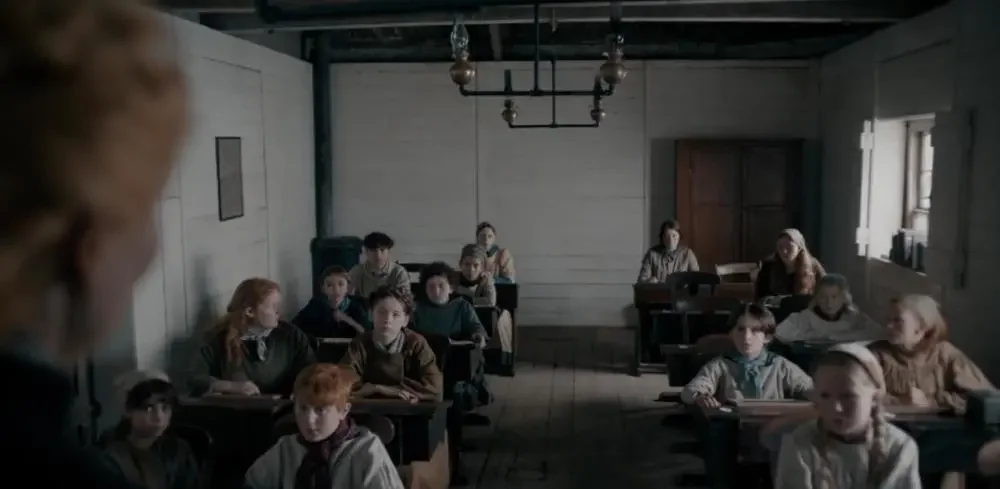
Including Cora’s son and Will’s daughter, that’s how the second episode ends.
In these two episodes, there is actually a line of London doctor Luke. He also seems to have a strong crush on Cora, but this guy is an absolute rational science.
Under the limited conditions at the time, he could even complete the operation for the torn heart capsule.
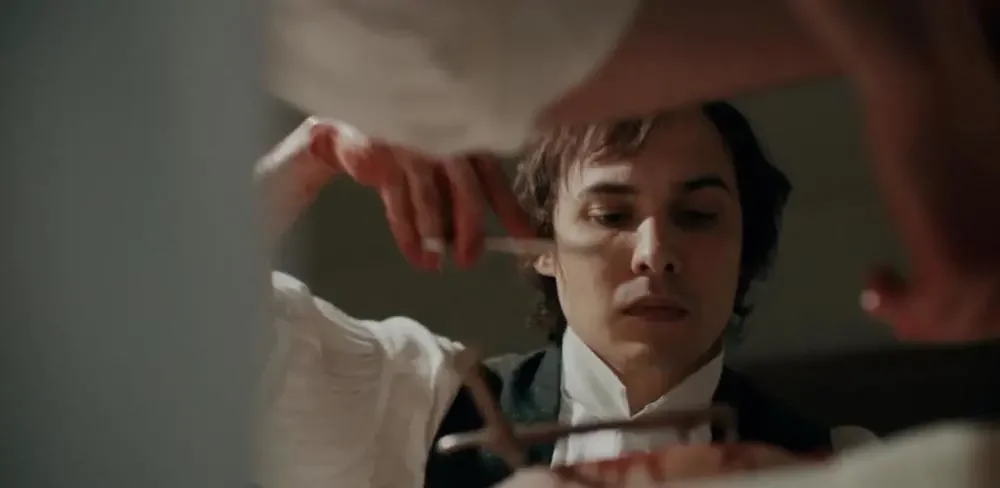
I believe that in the subsequent stories, Luke should act as a doctor to make scientific judgments for the subsequent corpses, assist the people in the village, and find out the truth behind the giant snake.
I prefer the whole story to be a contrived conspiracy. Finally, find the murderer, and then reveal the legend of the giant snake, and come to a “approaching science”. Friends who want to see the giant snake may be disappointed.
You can look forward to how Cora, who just lost her husband, got involved in Pastor Will’s happy marriage.
In the conservative England of 1893, how will this absurd sadomasochism and bizarre legend end? This seems a little more interesting than the serpent itself.
Related Post: “The Essex Serpent” Releases New Stills.
